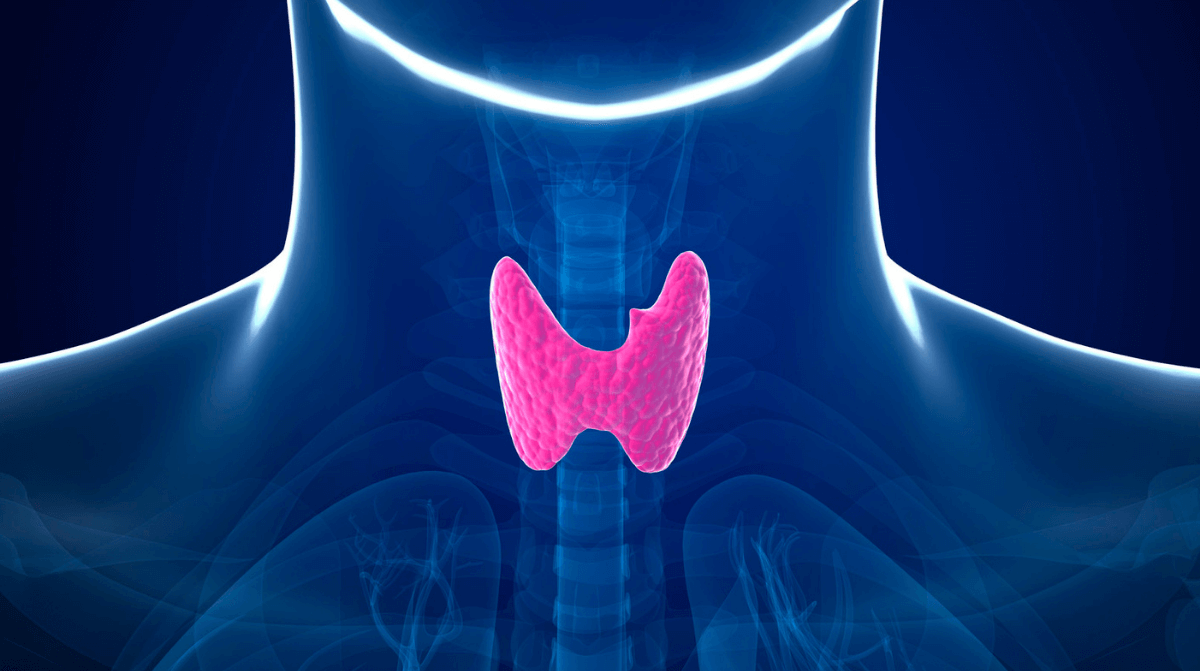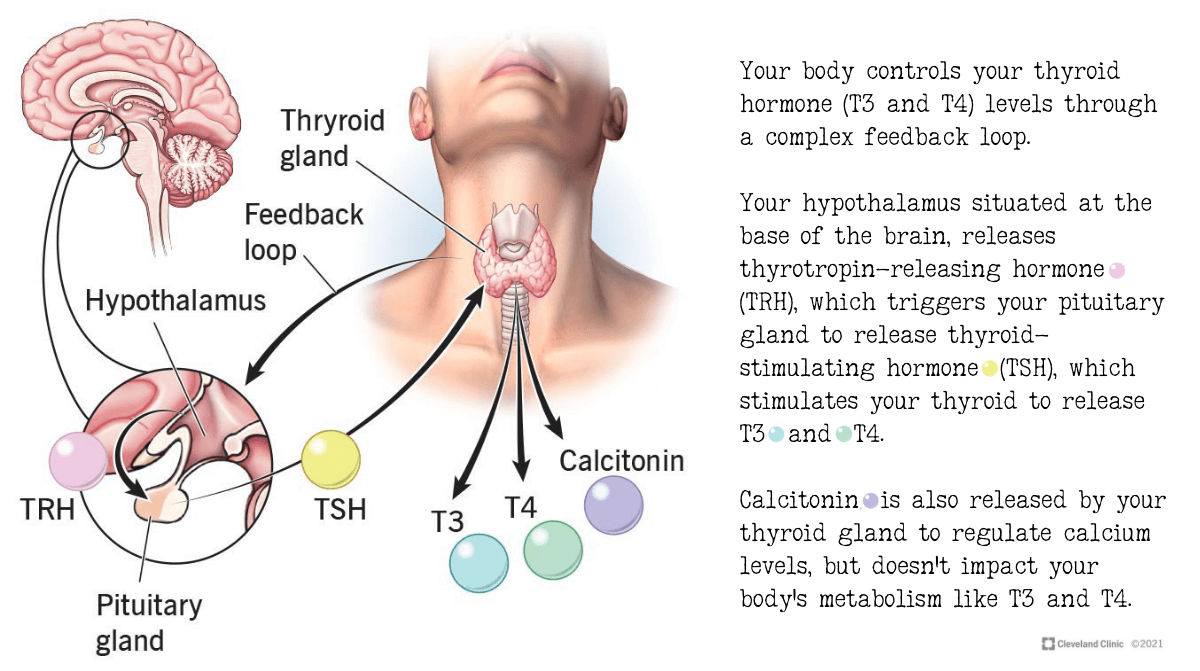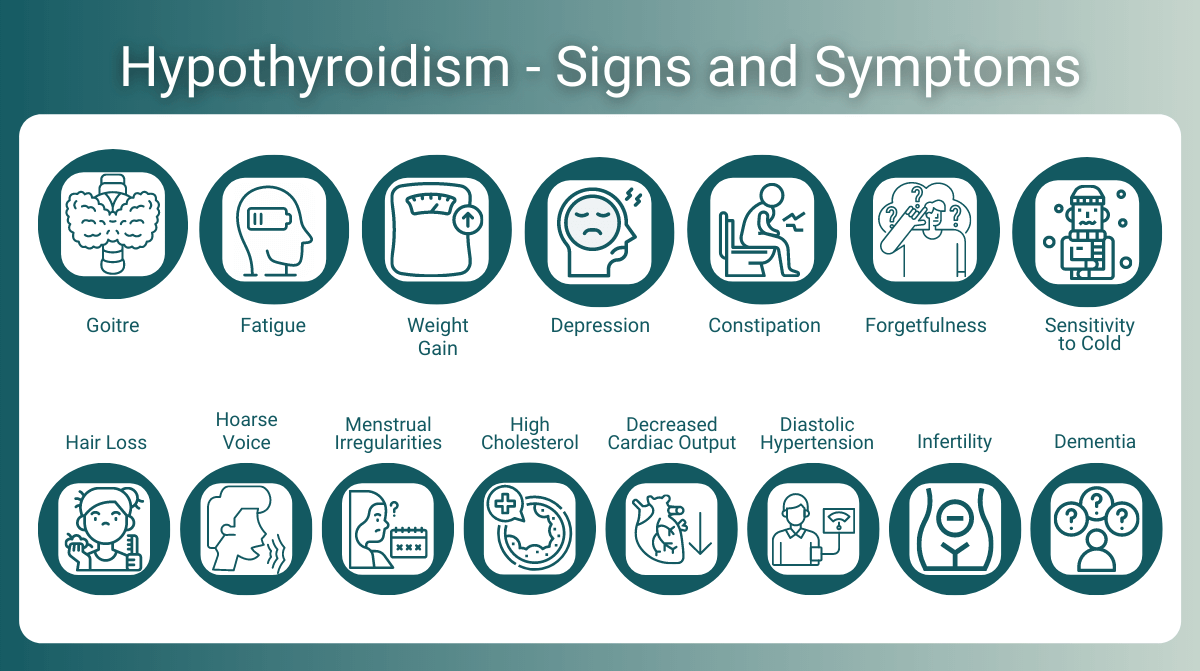Hypothyroidism is caused by a deficiency of thyroid hormone. It is a disorder of the endocrine system which is responsible for the secretion of hormones directly into the bloodstream. In addition to the nervous system and immune system, the endocrine system enables the body to cope with certain events and stresses.
Iodine deficiency is the major cause of hypothyroidism worldwide in iodine deficient areas. In iodine replete areas, Hashimoto’s thyroiditis is the major cause of hypothyroidism.
The thyroid is a butterfly shaped gland located in the front of the neck below the larynx and along the front of the windpipe. It consists of two oblong lobes and is connected by a band of tissue called the isthmus.
The thyroid gland regulates growth, development and metabolism by using iodine and converting it into triiodothyronine (T3) and thyroxine (T4). Numbers 3 and 4 refer to the number of atoms of iodine in each hormone. Iodine is essential for the production of thyroid hormones and humans need about 150 mcg (millionths of a gram) each day. More T3 and T4 hormones circulating in the blood equates to a faster metabolism, whilst lower amounts result in a reduced metabolism.
The thyroid is controlled by the pituitary gland which is situated at the base of the brain. The pituitary gland produces thyroid stimulating hormone (TSH) in response to T3 and T4 hormone levels. When there is too little T3 and T4 being released by the thyroid, the pituitary increases the amount of TSH produced, signalling the thyroid to produce more hormone. If iodine levels are too low, even though the gland will compensate for mild to moderate deficiency at the cost of the thyroid being stimulated and enlarged, eventually hormone levels drop and hypothyroidism occurs.
Clinical signs and symptoms of hypothyroidism include an enlarged thyroid gland called goitre, fatigue, weight gain, depression, constipation, impaired cognitive function including forgetfulness, cold intolerance, hair loss, hoarse voice and menstrual irregularities.
Hypothyroidism effects cardiovascular function by causing high cholesterol leading to atherosclerotic disease increasing the prevalence of ischaemic heart disease. Other cardiovascular effects include high homocysteine, association with atrial fibrillation, decreased cardiac output and diastolic hypertension. Furthermore, hypothyroidism can cause infertility, increase the risk of dementia over time and is significantly associated with developing metabolic syndrome.
ALL Naturopath employs natural therapies to treat hypothyroidism include nutritional supplementation, herbal medicine and dietary changes. Minerals can replace deficient levels of nutrients necessary for optimal thyroid function and herbal medicine and dietary changes support and encourage an increase in thyroid hormones.



